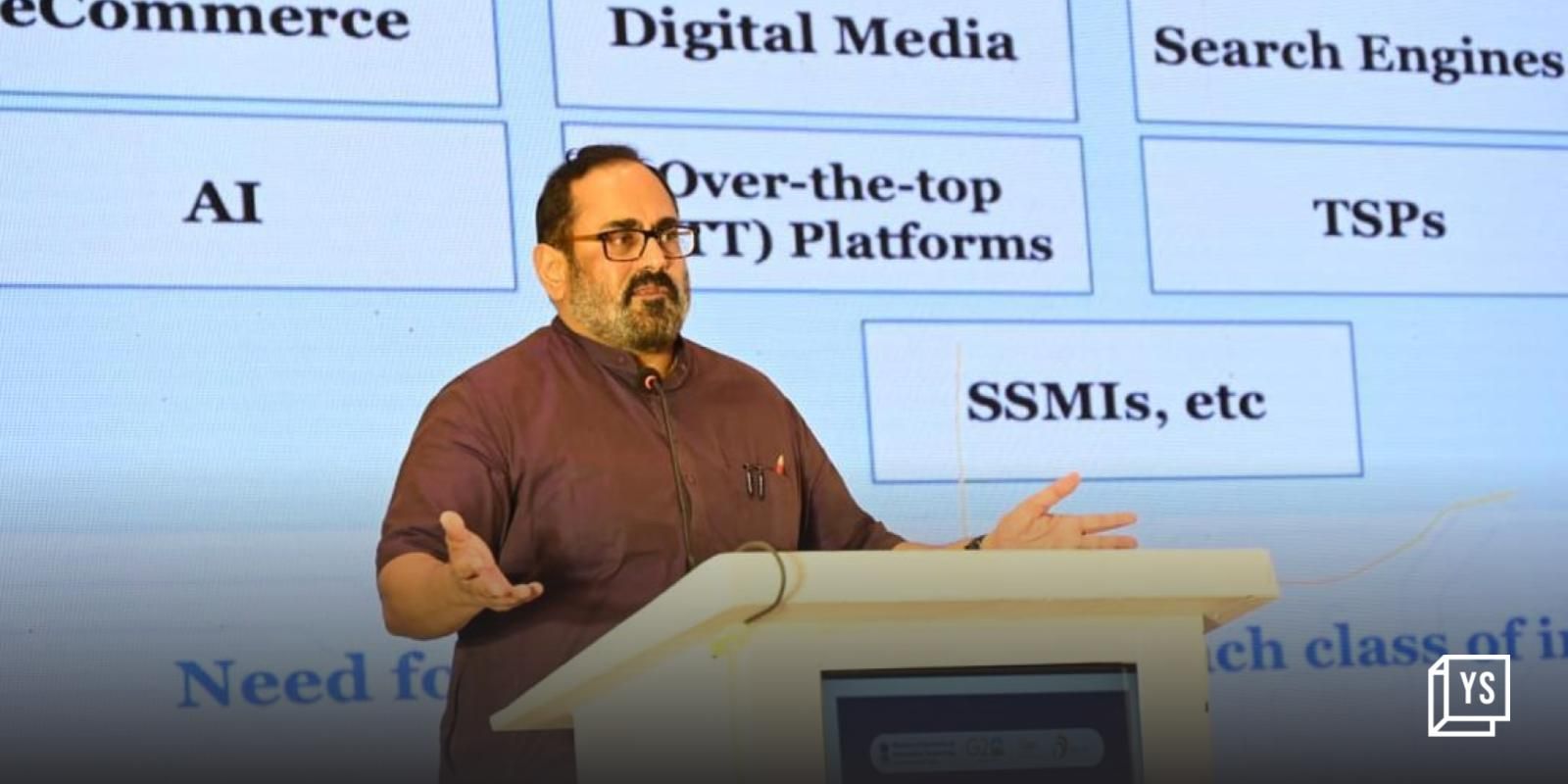
India’s call for global cooperation and equitable growth for all, alongwith its showcase of transformative digitisation have resonated with the world, Union Minister Rajeev Chandrasekhar has said, exuding confidence that G20 presidency of India underpins strong messages that will leave an indelible mark.
In an interview with PTI ahead of G20 Leaders’ Summit scheduled in New Delhi for September 9-10, Chandrasekhar termed India’s Digital Public Infrastructure (DPI) a force whose time has come and nothing can stop it.
He said the Indian approach on DPI smashes old normal, which was about big tech companies dominating the space, and paves the way for new normal, one that is open source, nimble, consumer-driven, and ‘non-intermediated’.
“When over 1 billion Indians are using it, who can resist it?,” Chandrasekhar said.
The Minister of State for Electronics and IT was referring to the country’s payment, identity and other population-scale platforms which have captured attention of many nations with several MoUs already signed.
India is developing its DPI as a core utility for every citizen.
Chandrasekhar pointed out that India’s message, in its capacity as current president of the G20 grouping of the world’s biggest economies, has been about accelerated, inclusive and resilient growth for all.
With New Delhi drawing global attention to cooperation for common good, and global macroeconomic stability, India’s approach and beliefs will resonate way beyond its G20 presidency, the minister affirmed.
“Our message from day one has been that the world is one family, that there is a need for more and more global cooperation to achieve our common good and common goals of sustainable planet, of prosperous, developing world for all countries and people. So I think that message will resonate long after the G20. The message that this is an era for responsible countries to show responsible rule of law…that will also resonate way beyond the G20 presidency of India,” Chandrasekhar pointed out.
India has highlighted that power of technology, innovation, and bright, young minds all around the world will shape the global future.
“So I think India’s presidency will certainly give a lot of permanent messages and learnings to the countries of the world beyond the G20 presidency, and it will certainly be one of the more defining Presidencies of the G20 in the recent years,” he said.
While the world went through two `black swan events’ over last 3-4 years, India has emerged as a “bright spot” with its economy expanding and “chugging at full speed”, Chandrasekhar noted.
“We hope that global recovery stabilises, that the US and other Western economies that are today slowing down or showing signs of weakness get back, because in a lot of way these are consumption markets…Currently India is a bright spot in the world…but we would also like the rest of the world to pick up and shrug off whatever problems…and get back to building an economy, global trade, economic growth, that is fair, sustained, equitable and allows many of small countries that have, in a sense, not been able to participate in economic growth also to participate,” he said.
Asked if he is confident about a Joint Communiqu or `Leaders Declaration’ being agreed on at the G20 Summit in India given the divergent views and differences (deadlock over the Ukraine war) that are emerging, the minister declined to make specific observations.
“I certainly don’t want to venture an opinion on that…but I can tell you from my interactions, that the Indian message and India’s view of the future of our world, as espoused beautifully by our Prime Minister is gaining a lot of traction and India as a statesman on the world stage, its position has been sealed by this presidency of the G20,” he said.
India, the minister said, has demonstrated responsible presidency, placing world interest ahead of any self interest.
“And I think this is an example of responsible conduct that all big countries must espouse to…some countries practice it, some countries don’t. Those who practice it are the ones that are being respected by the world, in the future. Those who don’t practice it are the ones who will not be,” he said.
Chandrasekhar said the Indian presidency of G20 has “certainly left a very indelible mark in many, many ways”.
Citing the Vasudhaiva Kutumbakam (One Earth-One Family-One Future) slogan, Chandrasekhar said the world is now recognising the need for more sustainability, with conversations revolving around the ways for nations and people to move towards shared future and prosperity.
Alongside this, India’s thrust on DPIs, the one Future Alliance, innovation, and young minds have been deeply appreciated by countries of the Global South, that long felt a gap in digitisation and technology.
“India putting forth this narrative about DPI, has seen a great deal of resonance, especially among those countries of the Global South, who have long felt that digitisation and technology were only for the rich countries,” Chandrasekhar said.
India, through its DPIs and one Future Alliance, has demonstrated that there is a reasonable and realistic opportunity for every country, big or small, to also embrace a powerful digitisation journey, he said.
Edited by Megha Reddy










